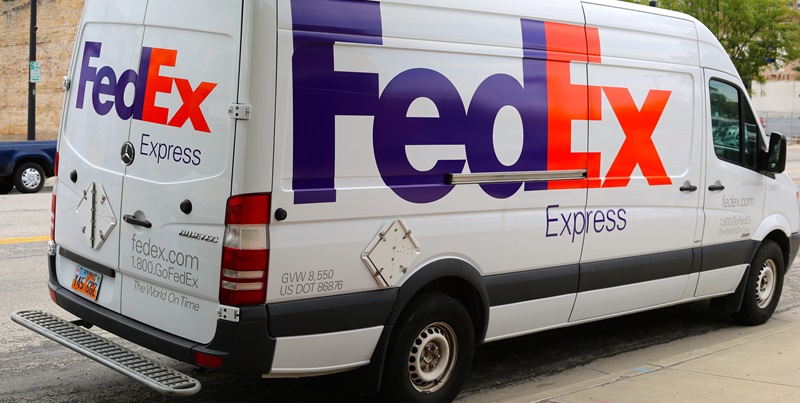In a pivotal ruling with widespread implications, the 5th U.S. Circuit Court of Appeals has reduced the punitive damages against FedEx in a notable retaliation lawsuit. Stemming from an employee’s accusation of workplace discrimination, the case highlighted key facets of punitive damages in retaliation claims. FedEx’s successful appeal underscores the impactful role corporate compliance programs can play in federal discrimination laws. This latest legal development offers significant insights for corporations and their workforce, underlining the importance of adherence to anti-discrimination statutes. The adjustment of the damages by the appellate court not only marks a substantial victory for FedEx but also sets a precedent for future retaliation cases, signaling to employers the importance of robust anti-discrimination policies and practices.
The Retaliation Claim and Initial Rulings
When a Black district sales manager at FedEx leveled allegations of race discrimination following a suggestion from her white supervisor to step down because of performance, a complicated and high-stakes legal dispute was ignited. The manager reported further retaliatory acts post-complaint, leading to her eventual termination, which she attributed to her complaints rather than genuine performance issues. Deciding to take legal action against FedEx, she was eventually vindicated—at least in part—by a jury that found in her favor and awarded her more than $1 million in compensatory damages along with a staggering $365 million in punitive damages.
FedEx, however, contended that the punitive damages were unconstitutionally excessive, questioning the jury’s rationale and seeking to overturn this part of the verdict. The contention set the appeal in motion, challenging the precedents for punitive damages and the employer’s liability when faced with accusations of workplace discrimination.
The Appellate Court’s Analysis
The appeals court’s reassessment of the FedEx employee’s jury award marked a critical legal milestone. Recognizing FedEx’s adherence to Title VII—including effective HR investigation practices and limiting the supervisor’s disciplinary power during such investigations—the court determined that punitive damages were unwarranted. The verdict emphasizes that without clear evidence of an employer intentionally breaching the law, punitive damages should not be imposed. Although the court dismissed the punitive damages, it upheld the claim of retaliation against the employee but adjusted the compensatory damages to align with the limits established by Title VII. This ruling serves as a reminder of the high burden of proof required for punitive damages and the legal protections in place to prevent unwarranted penalties against employers who make a good-faith effort to comply with employment laws.
The Importance of HR Investigations
The opinion of the appellate court brought to the forefront the pivotal role of meticulous HR investigations in cases of claimed retaliation. The court underscored FedEx’s timely and adequate response to the complaints lodged against it as key to its defense against punitive damages. This aspect of the decision conveyed a strong message: While protection against discrimination is paramount for employees, employers demonstrating good faith and due diligence should not be excessively penalized. HR’s role as a mediator and preventative force against workplace discrimination became more pronounced in light of this judgment, stressing the necessity of prudent and balanced HR practices.
Legal Implications and Employer Diligence
The FedEx litigation over employee retaliation and discrimination sheds light on the complex dynamics between workers’ rights and the enforcement of company policies. The appeals court’s ruling underscores the need for employers to act swiftly and effectively when faced with discrimination allegations to prevent retaliation claims. More than ever, the judicial system prioritizes a diligent response to such complaints. The case serves as a cautionary tale, signaling to employers the gravity of dealing thoughtfully with these issues. Retaliation must be addressed with urgency and seriousness, yet any punitive damages imposed require clear proof of either malice or a blatant disregard for the protected rights of the employees. This judicial decision reinforces the critical balance necessary in workplace management to safeguard employee rights while maintaining equitable and consistent practices.
Setting Precedents for Future Cases
The FedEx case marks a critical junction in federal anti-discrimination law, underscoring the challenge companies face in addressing discrimination claims while also avoiding excessive punitive damages. This legal saga highlights the complexities of enforcing Title VII, illustrating how a firm’s reaction to discrimination grievances is crucial. For both employers and workers steering through workplace law’s intricacies, this narrative is educational. It stresses the importance of providing strong protection for employees against discriminatory practices while also keeping punitive damages reasonable to not unduly burden businesses. The FedEx case thus acts as a valuable example, showing the importance of a diligent and measured approach to handling discrimination complaints within the corporate sphere.

